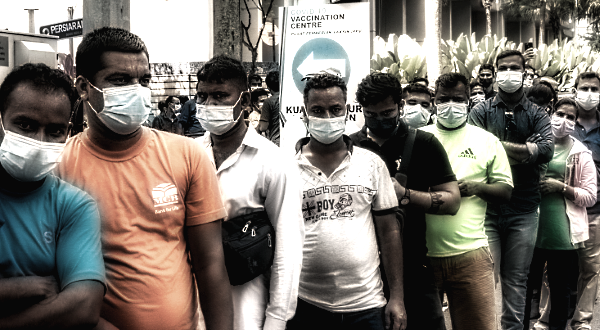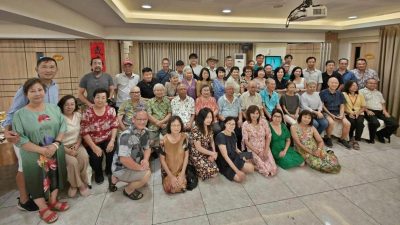Sin Chew Daily
On Tuesday, home minister Hamzah Zainudin urged employers still hiring illegal migrant workers to register them under the Workforce Recalibration Program to ensure that all migrant workers employed by them have legal work documents.
To the government, legal foreign workers are far easier to manage compared to the illegals, and you may still remember that during the peak of the coronavirus pandemic, the police launched massive operations to round up illegal migrant workers in the name of battling the virus.
The deadline for the latest recalibration program meant to accord legal status to undocumented foreign workers is December 31, after which the authorities will start launching massive raids against these workers.
As a matter of fact, the same program was already launched on November 16 last year, but the effects have been unsatisfactory.
According to the minister, more than 210,000 illegal foreign workers have been legalized under this program over the past one year, while over 150,000 have applied to be repatriated. However the sum of these two groups of people only makes up approximately 12% of the country’s estimated number of illegal migrant workers.
According to the figures provided by the Statistics Department two years ago, the number of legally registered foreign workers in this country stood at 2.2 million, but there could be as many as three million illegals here. Such an enormous number of illegal foreign workers who lack organized management, fixed living quarters and are therefore very much harder to track, will make them easy agents of virus transmission as well as security issues vis-à-vis legal workers.
In addition, due to their lack of legal status in this country, they are often exploited by some unscrupulous employers, not to mention having to live in constant fear of being arrested by the authorities. In view of this, “legalizing the illegals” has become a last-resort strategy the government has to adopt.
Over the years, the government has initiated numerous raids against illegal workers having considered a number of factors such as taxation, occupational safety control, social order and the right of local workers. Unfortunately such initiatives have failed to resolve the long-standing problem of “underground workforce” in the country.
As a consequence, the government has resorted to the annual “recalibration” programs even though the results are limited simply because of the huge number of illegal workers here.
 By right the government’s recalibration program should get the support of the employers, but the reality is not always so.
By right the government’s recalibration program should get the support of the employers, but the reality is not always so.
In the latest “legalizing the illegals” drive, the cost for each worker at almost RM8,000 is high enough to turn many employers away. Even the normal application to register a legal migrant worker involves the first-time payment of RM4,000 plus additional fees to be paid every year after that, not to mention the highly cumbersome procedures involved. Many employers would rather pay their illegal workers on a daily basis to cut cost.
As for these workers who have entered the country legally, they have already been heavily taxed by their agents before they even get to start work here: RM20,000 for a Bangladeshi and RM5,000 for a Nepali. If they have already forked out so much money to buy their tickets to fly to Malaysia to work illegally, why pay extra just to become “legal”?
As for those working in remote oil palm plantations, they don’t normally work only for one employer. As they may take up multiple jobs concurrently, there is absolutely not necessary for them to become legalized. Some of the more senior illegal workers now assuming “supervisory” positions are even less motivated, as they do not want their movements restricted because of the legal status.
Therefore, while the intent of the recalibration program is good, due to the intricacies behind the issue, the outcome has not been encouraging.
Perhaps things are a little different this time, as it entails more than just legalizing the illegals, for all parties — from the employers to the government and the Malaysian public — hope that the move will also plug the loophole that facilitates the rapid transmission of the virus through these illegal migrant workers lurking in the dark and afraid to show up for vaccination.
From the perspectives of human rights, even though these people are working illegally in this country, they also deserve the more “humanitarian “ vaccination arrangements in our ongoing war against the virus.
ADVERTISEMENT
ADVERTISEMENT


































